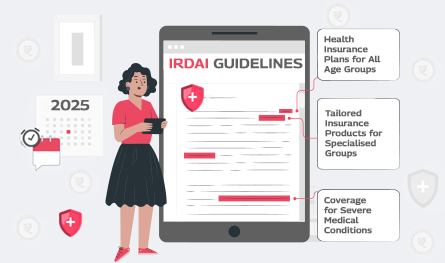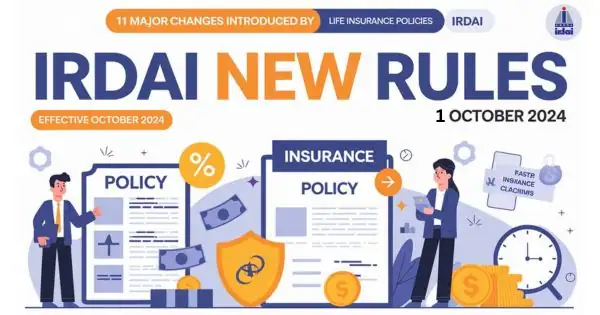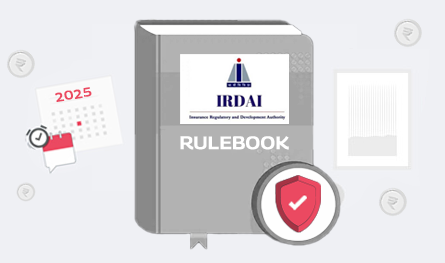The year 2025 has brought several important reforms in India’s insurance industry. These changes, introduced by the Insurance Regulatory and Development Authority of India (IRDAI), aim to improve transparency, policyholder protection, and operational efficiency. For anyone holding or thinking of buying insurance—especially through brokers like KaroInsure—knowing these reforms is essential. So below, you’ll find a breakdown of what’s changed, how it affects you, and how to benefit.

Key Regulatory Changes
Here are some of the major reforms introduced or proposed by IRDAI in 2025:
- Review of the Insurance Act, 1938
- IRDAI formed a high-powered committee chaired by former SBI chair Dinesh Khara to review proposed amendments to the Insurance Act. The Times of India+2Financial Express+2
- Possible changes include allowing more foreign direct investment (FDI), simplifying regulatory norms, and modernizing oversight. Insurance Business Asia+2ET Now+2
- Mandatory Reinsurance Cession
- Internal Insurance Ombudsman Scheme
- IRDAI has released draft norms mandating insurers to appoint Internal Insurance Ombudsmen (IIOs) for handling policyholder grievances up to ₹50 lakh. The Economic Times+1
- This aims to streamline complaint resolution before escalation to external ombudsmen. The Economic Times
- Improved Policyholder Protections & Transparency
- IRDAI is pushing for simpler, clear policy wordings so policyholders better understand what they buy. PayBima+1
- New guidelines limit insurers’ ability to repudiate claims on the grounds of non-disclosure or incomplete info for long durations; reduction of moratorium periods in health policies (e.g. from 7 to 5 years) for certain undisclosed conditions unless fraud is involved. PayBima+1
- GST & Tax Reforms
- Some reforms have targeted how insurance products are taxed, especially exemptions or rationalization of GST on life & health premiums. Grant Thornton Bharat+3ET Now+3The Economic Times+3
- Changes to taxation of certain investment-linked insurance-ULIPs for high premium amounts are in discussion. Grant Thornton Bharat
- Governance & Data Regulations
- IRDAI has consolidated data maintenance and sharing rules into regulations like IRDAI (Maintenance of Information by Regulated Entities and Sharing of Information), 2025. These require insurers to maintain electronic records, ensure data privacy/security, and use India-based data centers. Insurance Asia
- Meeting regulations have been updated to improve efficiency (e.g., virtual meetings allowed, shorter notice for urgent meetings etc.). JSA+1

Impacts for Policyholders
What do these reforms mean for you, as a policyholder or someone considering insurance?
- Faster & clearer claims and grievance redressal: Internal ombudsmen should reduce lag time for resolving complaints. Clearer policy wording helps reduce misunderstandings.
- More protection for long-term policyholders: Reduced ability for insurers to dispute claims many years later for non-disclosure is helpful.
- Possibility of better pricing: GST rationalisation & better regulatory oversight could reduce costs or at least make cost structures of premiums more transparent.
- Greater foreign investment & competition: If FDI caps are increased and laws modernised, more players may enter the market, potentially leading to more product choice and competitive pricing.
- Better data & privacy safeguards: With stricter requirements for data governance and storage, policyholders’ personal and claim data may be safer.
Things to Watch Out For
While reforms are mostly positive, policyholders should also keep alert on the following:
- Even with GST exemptions, insurers losing input tax credits might raise premiums elsewhere (service or admin fee etc.).
- Internal ombudsman system is in draft; implementation may take time and vary among companies.
- With more regulatory changes, there may be transitional issues—existing policies might need to adapt, or certain policy features/riders may change.
- Product changes (ULIPs, health cover) could bring changes in how claims, benefits, or tax treatment work.

How to Benefit / What You Should Do
Here are some tips for policyholders to make the most of these reforms:
- Review your policy wordings: After renewals, check the updated policy document for any changes in wording, exclusions, or moratorium period.
- Raise grievances if needed: If your insurer isn’t responsive, make use of the grievance mechanism, and later internal ombudsman once companies have appointed them.
- Watch for tax changes: Updates in ULIP taxation or GST impact may affect policy costs or returns—consult a financial advisor before making large commitments.
- Compare products carefully: As competition and product features evolve, don’t stick to an old policy without checking newer options.
- Keep records updated: Since IRDAI is tightening data and disclosure norms, ensure that your personal details, health disclosures etc. are accurate, to avoid trouble during claims.
Conclusion
The IRDAI reforms of 2025 are shaping up to make the Indian insurance market more policyholder-friendly, transparent, and competitive. For clients using platforms like KaroInsure, these changes mean better access, clearer policies, stronger protection, and more options. If you’re an existing policyholder or soon plan to buy insurance,then it’s a good time to review your coverage, stay informed, and ensure your policy aligns with the new regulatory environment.

Leave a Reply